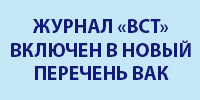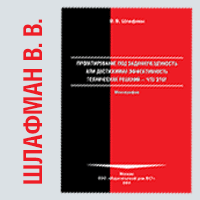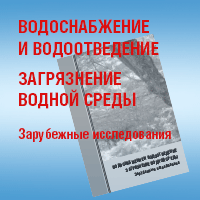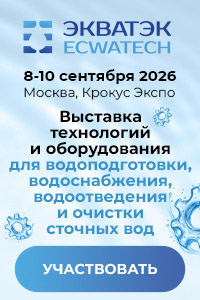№1|2021
METROLOGY
DOI 10.35776/VST.2021.01.02
UDC 620.1/.2:681.518.3:54.084
Experience and prospects of using the laboratory information system in testing laboratories of municipal water utilities
Summary
The task of confirming the high level of quality of the conducted research places analytical laboratories of water utilities before the need of being certified for compliance with the requirements of the state and international standards (updated GOST ISO/IEC 17025-2019, etc.), involving the introduction of an intralaboratory control (IC), a quality management system (QMS), passing the procedures of interlaboratory comparative tests (ICT). As a result, the workload on the laboratory personnel significantly increases, the efficiency of the work of engineers and laboratory assistants declines, the costs of the laboratory activities increase. The use of laboratory information systems (LIS, LIMS), i. e. software tools for the automation of business processes that provide for the comprehensive solution of the tasks of accredited laboratories is considered as a way to optimize the laboratory’s activities; and it is simple and transparent to increase the efficiency of their activities. An example of such information systems is LIS «Khimik-Analitik» that has been successfully cooperating with the laboratories of water utilities throughout Russia for more than 20 years. Today, LIS meets almost all the requirements to the accredited laboratories, i. e. entering the results of analysis (including directly from the equipment) and their metrological processing in accordance with the requirements of the regulatory documents, compiling report documents, accounting of inventory items with possible integration with accounting systems, maintaining QMS journals, drawing up route plans and job setup. The access to LIS documents and development of calibration characteristics is possible through web services. LIS is available in various configuration options, the minimum of which is LIS for IC software product.
Key words
control of water quality , automation means , vodokanal , intralaboratory control , laboratory information system
The further text is accessible on a paid subscription.
For authorisation enter the login/password.
Or subscribe
REFERENCES
- Vyucheiskaia D. S., Bashketova N. S., Badaeva E. A. [Development of a system for the protection of drinking water supply sources in Russia]. Proceedings of the All-Russian Scientific and Practical Conference with international participation «Health is the basis of human potential: problems and ways to solve them». 2018, no. 2, pp. 775–785. (In Russian).
- Nefedova E. D., Khiamialiainen M. M., Kovzharovskaia I. B., Shevchik G. V. [Risk oriented approach to the arrangement of the drinking water quality control]. Vodosnabzhenie i Sanitarnaia Tekhnika, 2018, no. 3, pp. 5–10. (In Russian).
- Bagaev Iu. G., Gundyreva T. M., Shipulin R. V. [Specific features of the transition to the process regulation of public wastewater disposal systems]. Vodosnabzhenie i Sanitarnaia Tekhnika, 2019, no. 4, pp. 26–32. (In Russian).
- Tymchuk S. N., Larin V. E., Sokolov D. M. [Sanitary regulation and sanitary control – the basis of ensuring the safety of water bodies]. Vodosnabzhenie i Sanitarnaia Tekhnika, 2013, no. 10, pp. 9–17. (In Russian).
- Tymchuk S. N., Larin V. E., Sokolov D. M. [Most significant sanitary microbiological parameters of drinking water quality assessment]. Vodosnabzhenie i Sanitarnaia Tekhnika, 2013, no. 11, pp. 8–17. (In Russian).
- Tereshchenko A. G. [Rounding off calculation results in laboratory information systems]. Sovremennaia Laboratornaia Praktika, 2014, no. 1, pp. 2–9. (In Russian).
- Tereshchenko A. G., Pikula N. P. Vnutrilaboratornyi kontrol’ kachestva resul’tatov khimicheskogo analiza [Intralaboratory control of the quality of chemical analysis results. Tomsk, STT Publ., 2017, 266 p.].
- Khovanova S. B., Repina M. E., Nepomilueva L. I., Pochobut I. L., Malyshev V. V. [The experience of Central analytical laboratory of «Tumen Vodokanal», LLC]. Vodosnabzhenie i Sanitarnaia Tekhnika, 2014, no. 6, pp. 45–52. (In Russian).
- Kamenetskii A. B., Kur’ianov V. A., Zhuginskaia E. M. [Experience in introduction of the systems of quality management and ecological management at the PU «Zelenogradvodokanal»]. Vodosnabzhenie i Sanitarnaia Tekhnika, 2011, no. 3, pp. 9–13. (In Russian).
- Steblevskii V. I., Domnin K. V., Tarabarov V. A., Pak A. P. [Introduction and development of management systems at the Khabarovsk MUE «Vodokanal»]. Vodosnabzhenie i Sanitarnaia Tekhnika, 2012, no. 7, pp. 71–75. (In Russian).
- Kuz’mina L. V., Khoroshil’tseva T. A. [Internal audit of management systems as a tool of the management process improvement]. Vodosnabzhenie i Sanitarnaia Tekhnika, 2019, no. 1, pp. 12–18. (In Russian).
- Grosheva L. P. [A new look at the future of the analytical service of an industrial enterprise. Laboratory information systems]. Collected papers, 2006, pp. 142–153. (In Russian).
- Bazhenov V. I., Danilovich D. A., Samburskii G. A., Bazhenov V. V. [Digital Vodokanal – a myth or reality?]. Nailuchshchie Dostupnye Tekhnologii Vodosnabzheniia i Vodootvedeniia, 2017, no. 6, pp. 3–48. (In Russian).
- Tereshchenko A. G., Baianova T. V., Iushkeeva N. V., Tereshchenko O. V., Tolstikhina T. V., Makagon N. A. [Experience of introducing «Khimik-Analitik» laboratory information system]. Vodosnabzhenie i Sanitarnaia Tekhnika, 2005, no. 1, pp. 14–17. (In Russian).
- Stepanov S. V., Strelkov A. K., Shvetsov V. N., Morozova K. M. Biologicheskaia ochistka stochnykh vod neftepererabatyvaiushchikh zavodov [Biological treatment of wastewater from oil refineries. Moscow, ASV Publ., 2017, 204 p.].
- Saf’ianov A. S., Tereshchenko V. A. [Problems of automation of analytical laboratories in industries related to water treatment. New functional solutions based on WEB-access]. Vodoochistka. Vodopodgotovka. Vodosnabzhenie, 2013, no. 7, pp. 44–47. (In Russian).






